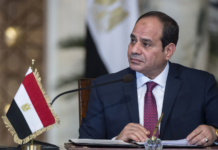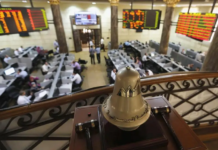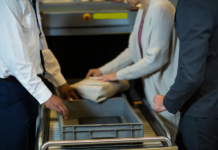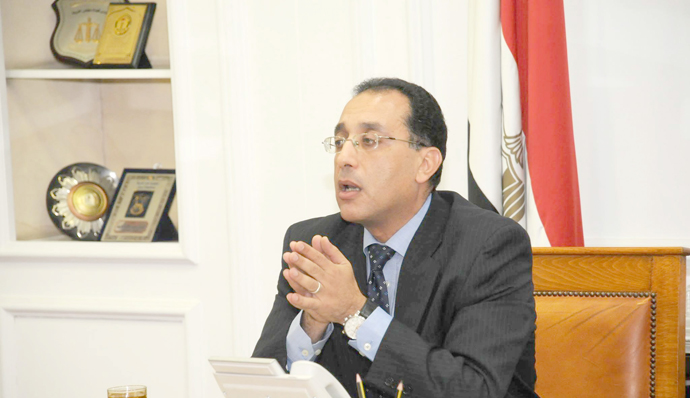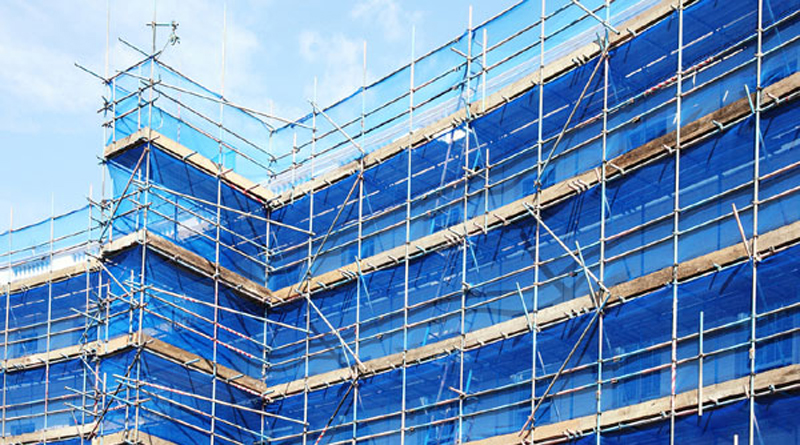
Economic cooperation is an integral part of the discussions that President Abdel-Fatah El-Sisi is holding with his counterparts during his visit to Germany this week.
Egyptian President Abdel-Fattah El-Sisi will meet his German counterpart Joachim Gauck in Berlin today, Wednesday, during his visit to Germany. The meeting will be followed by another with Chancellor Angela Merkel and Foreign Minister Frank-Walter Steinmeier.
During his two-day visit, the Egyptian leader is expected to give a speech at the closing session of the Egyptian-German Economic Forum and will sign a number of economic agreements, including some that are related to the energy sector with Germany multinational Siemens and aim to boost Egypt’s power supply.
Other agreements covering the fields of housing, infrastructure, education and vocational training are also to be signed during the visit, as both nations are well aware of the importance of their ties.
A number of cooperation initiatives are expected to be presented during the visit other than the ones agreed upon during the Egypt Economic Development Conference, held in Sharm El-Sheikh in March, according to Egypt’s Ambassador to Germany Mohamed Hegazi in TV statements this week.
During the conference, Egypt signed agreements and memoranda of understanding with international companies worth some $150 billion. German industrial giant Siemens signed a group of memoranda of understanding with Egypt’s Ministry of Electricity to establish several power plants at the cost of $10 billion.
The president will take part in a key economic forum along with 250 businessmen and in the presence of Egypt’s Minister of Industry and Trade Mounir Fakhry Abdel Nour and Minister of International Cooperation Naglaa al-Ahwani.
Egypt expects Germany’s support in its war on terror and to expand economic and investment relations, Hegazi said, citing the security file and terrorist threats that Egypt and the entire region are facing.
President Sisi is in Germany on an invitation from Chancellor Merkel, Germany’s Ambassador to Egypt Hansjörg Haber told a press conference held at the German Embassy in Cairo.
The invitation was made in September following a telephone call between the two sides, he said, adding that they agreed that the visit took place in the wake of the parliamentary elections so that the Egyptian leader would visit Germany after having completed the roadmap. However, after postponement of the elections, Chancellor Merkel again invited President Sisi to visit Germany on the sidelines of the Sharm El-Sheikh conference in March, he pointed out.
Sisi and Merkel are expected to discuss the Egyptian government’s programme regarding the economy, stability, combating terror, freedoms and human rights, Haber said.
He pointed out that the Germans were grateful for President Sisi’s positive remarks about Germany in his closing speech at the Sharm El-Sheikh conference which reflected the appreciation of Germany’s contributions in various fields in Egypt, particularly development, education and culture, he said.
A number of economic agreements will be signed between German companies and the Egyptian government including the implementation of power plants between Germany’s Siemens and Egypt, Haber said, referring to the memorandum of understanding signed to this effect during the economic conference in March.
Also in statements to a press and media delegation accompanying President Sisi during his visit to Germany at the German embassy in Cairo, Germany was described as Egypt’s friend and wished it all stability and progress, and said any difference in views did not indicate any hostility. The visit was taking place after a hiatus in exchange of visits between leaders of the two nations, and Egyptian-German relations were strong and stable.
Agreements to be signed during the visit included several fields, particularly energy, new and renewable energy and petroleum, Commercial Minister Plenipotentiary to Germany Mohamed Khalaf said.
The two sides would sign an important agreement through which Egypt becomes a partner and guest of honour in Fruit Logistic, the largest agricultural exhibition in the world to be held in Berlin in February, Khalaf said.
Egyptian-German relations were historical, he said, referring to the increase in the volume of trade between the two sides year after year. He expected more cooperation during a meeting of Egyptian and German businessmen during the joint committee meetings and the economic forum.
Khalaf expects bilateral meetings to take place between Egyptian and German businessmen to attract more investments to Egypt in the future, which will reflect positively on the Egyptian economy.
Germany and Egypt have long maintained close and wide-ranging relations and Germany continues to exert efforts to help Egypt build a modern and democratic state. The Federal Government is also closely watching the human rights situation in Egypt.
Since August 2011, as part of the Transformation Partnership, the Federal Government has supported Egypt in its efforts to modernise the society and bring about democratic change.
Germany’s Transformation Partnership with Egypt focuses on helping establish the rule of law and good governance, promoting employment and a dual system of vocational training, as well as civil society and professional media. To this end, on 12 August 2011 the two countries’ foreign ministers signed the Berlin Declaration on German support for democratic change in the country.
Despite the large-ranging diversity in bilateral relations at all levels, the volume of trade does not exceed three billion euros annually and the volume of German investments in Egypt stand at LE 2 billion, ranking 12 in foreign investments. These figures do not express the potentials available in the two countries.
Egyptian exports to Germany from January to October 2008 reached 1,027 billion euros against 673 million euros during the same period in 2007 with an increase of 52.5 per cent. This is the first time in which the Egyptian exports exceeded the limit of one billion euros. The non-petroleum exports account for 449 million euros during the same period in 2008 against 370 million euros for the same period in 2007 with an increase of 21.3 per cent.
Meanwhile German exports to Egypt reached 2,179 million euros during the period from January to October 2008 compared with 1,763 million euros during the same period in 2007, an increase of 23.6 per cent.
Egyptian-German cooperation aims at creating job opportunities through allowing opportunities for training, qualifying and providing financial and consultative services. Top priority is therefore given to boosting the private sector and improving the competitive capability of the micro, small and medium sized enterprises. The Mubarak-Kohl Project for Technical Education has been, thus, developed to meet the demand on the trained workforce in the mounting private sector.
The German tourism inflow to Egypt witnessed a significant growth in 2008 where all estimates indicated the possibility of reaching high levels of German tourists’ inflow to hit 1.2 million. However at the time, the repercussions of the global financial crisis and the state of recession of the German economy as well as the revolution in Egypt in 2011 cast shadows on the opportunities of maintaining these levels. The Berlin Tourism Bourse ITB is one of the most important marketing activities in the field of tourism in the German market where the Tourism Minister and the representatives of the Egyptian institutions are keen on participating in those activities.



